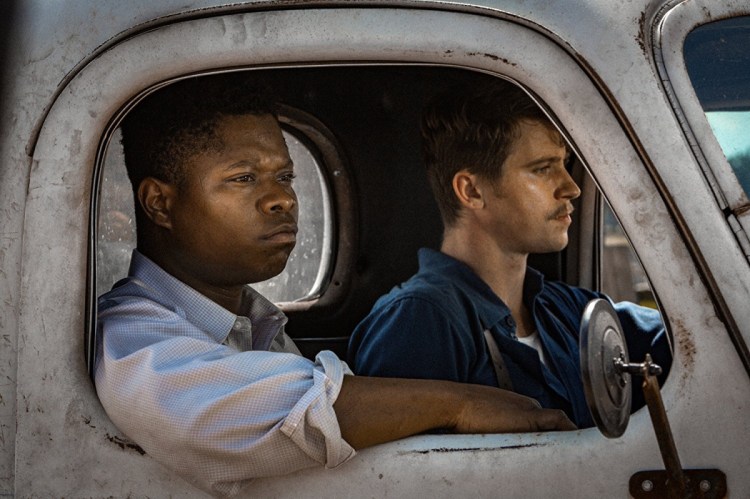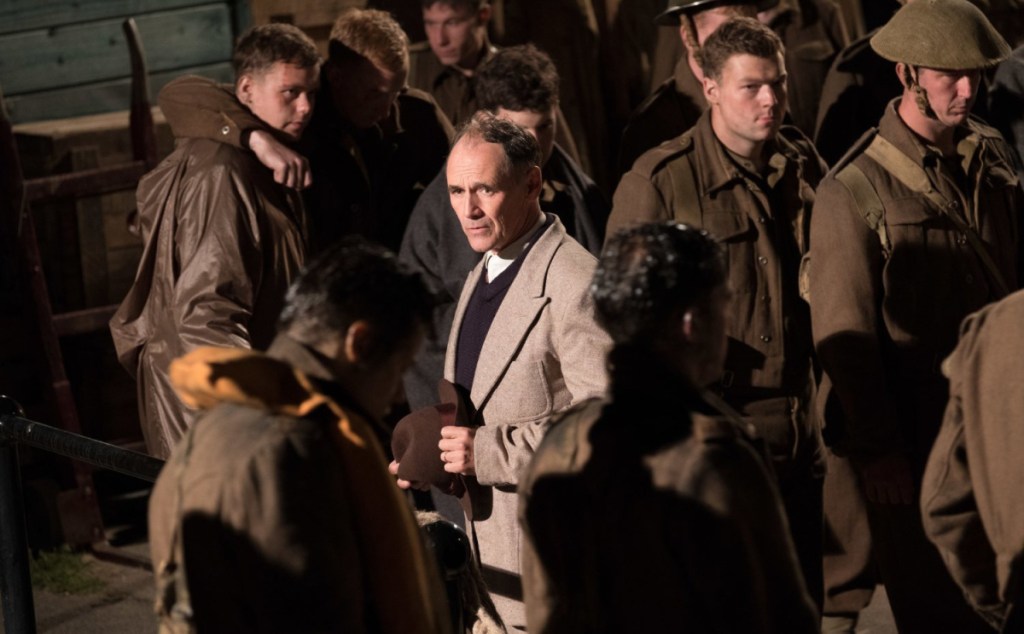In Dee Rees’ superb movie “Mudbound,” which scored four Academy Award nominations but not its deserved best picture berth, there is a flashback sequence wherein a young U.S. Army Air Force veteran of World War II tells his friend that he was saved from certain death by a black fighter pilot with exquisite timing.
The veteran is white. His friend, a fellow vet, is African-American. The two are living outside Marietta, Miss., in the mid-1940s. The armed forces are still segregated. Rosa Parks has not yet refused to give up her seat on a bus in Montgomery, Ala. The civil rights movement has yet to ignite. In Marietta, Miss., Jim Crow still has years to go. For one of the parties, this friendship will prove very dangerous.
But Rees’s Netflix-distributed film – which is based on the novel of the same name by Hillary Jordan and does not shy away from the graphic depiction of racist atrocities – still leaves the viewer with the sense that the old days are numbered, that the racists will eventually breathe their last and be vanquished, that there is hope for America, that the war has not just been an upending of normalcy but a catalyst for positive change.
There are at least three movies dealing explicitly with the legacy of World War II in this year’s Oscar crop, and all of three of them make a version of that point. Pondered together, they make a very different statement from the traditional war films of the 1940s and 1950s, usually peddling inspiration within existing social and authoritarian codes, and from the group of subsequent films that emphasized the pain of the war, as seen, for example, in “Saving Private Ryan,” a film made in 1998.
Both Christopher Nolan’s “Dunkirk” and Joe Wright’s “Darkest Hour” preach the moral authority of ordinary people and, as a corollary, the obligation of democratically elected officials not to lie. Even in times of war. “Darkest Hour” is the gripping story of how British wartime Prime Minister Winston Churchill marshaled his country to fight Hitler to the death, not to appease him by making a deal through his fellow fascist Benito Mussolini. The primary impact of the film is to remind us all how resistance was, in fact, just one possible political choice for the British in the early 1940s. And a tough one. Which is very easy to forget.

Gary Oldman as British Prime Minister Winston Churchill addressing the nation in “Darkest Hour.”
In the film’s most important, and moving, scene, Churchill abandons his official car and takes a trip on the London Underground, where he encounters a car full of diverse but steely British citizens, all ready to give their all in resistance against Hitler. These ordinary folks buck up the dithering P.M., who otherwise has to deal with the mealy-mouthed likes of Neville Chamberlain (Mr. “Peace for Our Time”) and Foreign Secretary Viscount Halifax, who views making a deal as essential to the survival of the island. Only after his Tube ride can Churchill summon his courage to make his famously Shakespearean “We shall fight on the beaches” speech in the House of Commons. The film suggests it was co-written by people on a subway train.
It’s a fictional scene, of course, and it has irritated the more conservative wing of the British Churchillians, many of whom dislike how “Darkest Hour” dispenses with the usual Churchillian swagger and imagines a doubting, alcoholic, eccentric and far-from-decisive leader, a “puppet of the people” who needs to be buoyed by a trip on the District Line among those who actually were looking to him for leadership. But that’s the point of the film: Authoritarianism, it is saying, had morphed into fascism, and it cannot properly be vanquished merely by titled, white, male elites. In other words, Churchill had to learn to be other than himself in order to lead. It’s a very 2018 point of view, of course, but that does not make it less convincing.
“Dunkirk” is not that different – inevitably, since Nolan’s film is all about the one incident in World War II when the citizenry – the citizenry of a certain age, to boot – bailed out the military strategists.
Nolan, who understands complexity, hardly is a triumphalist storyteller, but the takeaway of the movie still is that the war had undermined the class system, reminded the elite of their dependency on ordinary people, their surrogate parents, really. In so doing, it reminds all of us of how much the war reduced previous prejudices to rubble and put in place so much of what we now think of as social progress.
In his 1947 play “All My Sons,” now in hugely compelling and award-worthy revival at Court Theatre on the campus of the University of Chicago, Arthur Miller imagined a scenario wherein a pressured businessman, whom he named Joe Keller, would send the Air Force cracked cylinder heads and then lie and blame an underling, rather than risk a loss of production, revenue and reputation. Servicemen had died as a result.
In the play – one of the greatest American works of the century – Keller finds himself having to justify his acts to a succeeding generation, including his own beloved son.
His argument is, in essence, the war made him do it: “Listen, you gotta appreciate what was doing in that shop in the war. The both of you! It is a madhouse. Every half hour, the Major calling for cylinder heads. They were whippin’ us with the telephone. The trucks were hauling them away hot, damn near. I mean, just try to see it human, see it human.”
Miller gave Joe his argument but then hung him by his own words. The playwright’s point was that the war – only just over – hadn’t merely upended and destabilized American society but fundamentally changed it for good. The war had made paying attention to the common good, to the rights of one’s fellow free American, a moral imperative. Why else had people given their lives? The old ways of doing business were over. A different kind of hero had come home. The future meant attention to inclusivity and fairness. Anyone who did not learn that fast was going down like Joe.
There are fascinating echoes with the current moment, and of course with these 2017 films. If Miller were a living member of the Academy with a ballot in his hand, he’d have a bunch of very appealing options.
Send questions/comments to the editors.




Success. Please wait for the page to reload. If the page does not reload within 5 seconds, please refresh the page.
Enter your email and password to access comments.
Hi, to comment on stories you must . This profile is in addition to your subscription and website login.
Already have a commenting profile? .
Invalid username/password.
Please check your email to confirm and complete your registration.
Only subscribers are eligible to post comments. Please subscribe or login first for digital access. Here’s why.
Use the form below to reset your password. When you've submitted your account email, we will send an email with a reset code.